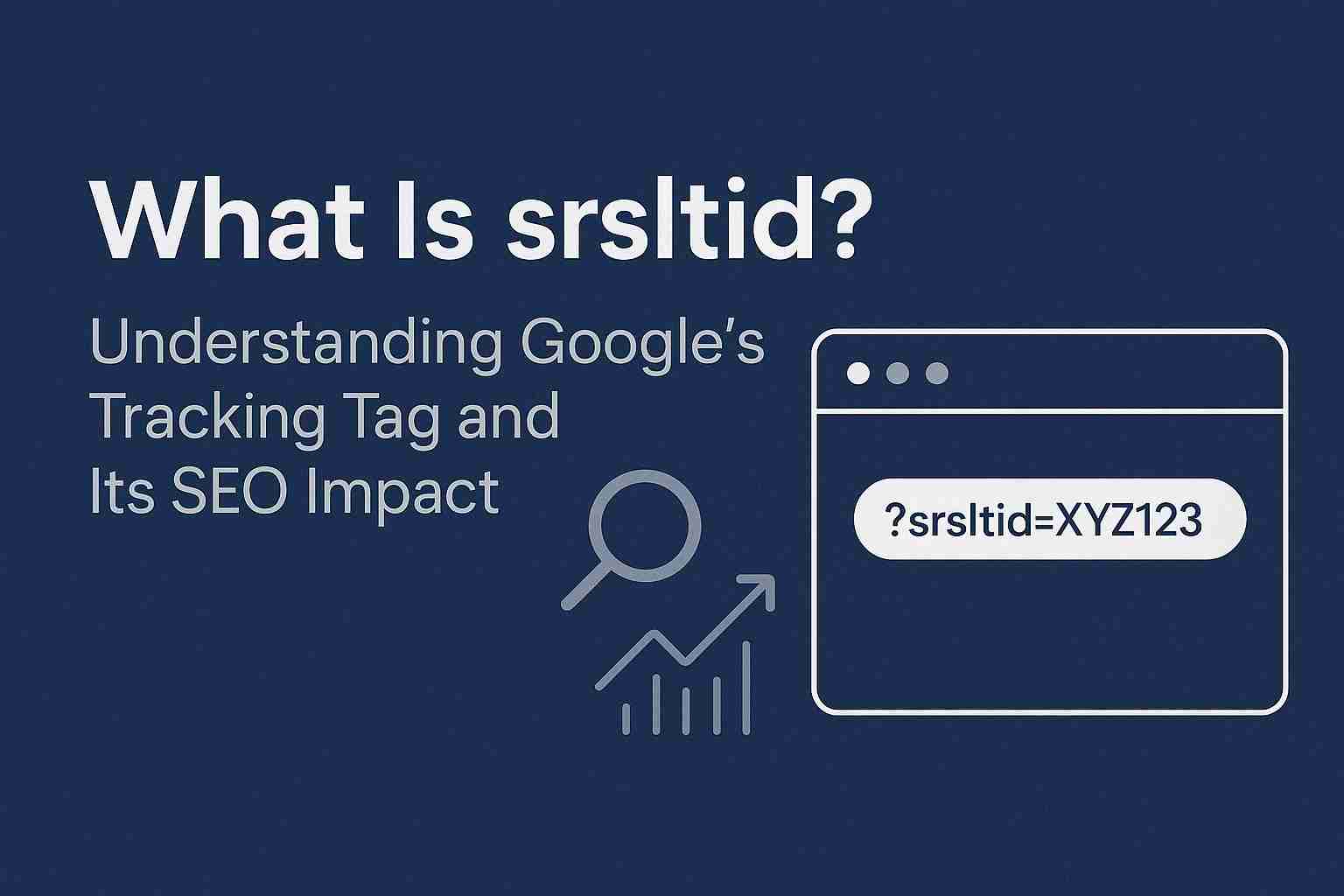Introduction
Notice new, weird URLs in your SERP reports like ?srsltid=XYZ123 and wonder what it is? That’s Google slipping in a srsltid tag: a tracking parameter originally designed for Shopping results. But since mid‑2024, it’s showing up everywhere even in your organic listings.
What Exactly is the srsltid Parameter?
srsltid stands for Search Result Source Listing ID. It’s a click-tracking tag appended by Google Merchant Center (GMC) to URLs for both paid and organic listings when GMC auto-tagging is enabled. Each click generates a unique ID, helping merchants trace origin and performance through analytics.
Why Is srsltid Suddenly Showing Up in Organic SERPs?
This isn’t a bug it’s an intentional change rolled out in August 2024. Google extended srsltid tags from Shopping results into standard organic links for sites using Merchant Center. It means your top organic result might now include a random srsltid ID, even if no Shopping feed is involved.
Read About: Managing URL Parameters in Search Console.
Is srsltid Harmful for SEO or Analytics?
It can cause headaches namely:
- Duplicate content: URLs with different srsltid values can be treated as separate pages, weakening ranking signals.
- Skewed analytics: Traffic appears split across many parameterized URLs, making reporting messy.
- Crawl budget waste: Bots may crawl duplicates instead of real content.
- Misattribution: Organic traffic might get credited to Shopping throwing off performance attribution.
How to Handle srsltid Without Losing SEO Gains
Here’s what savvy SEOs should do:
- Use canonical tags: Always point to the clean URL (<link rel=”canonical” href=”…”>) so Google knows which version to index.
- Configure URL parameters in Search Console: Mark srsltid as a tracking parameter so Google ignores it during crawling.
- Filter it in analytics: Set up filters in GA (or similar) to strip out srsltid from reporting URLs.
- Consider disabling auto‑tagging: If you don’t benefit from srsltid data, turning off auto‑tagging in GMC removes it but be aware you’ll lose that tracking.
Expert Insight
“John Mueller from Google confirmed that srsltid doesn’t affect indexing or ranking it’s purely tracking but it still appears in Search Console and SERPs”.
FAQs
Q: Will srsltid hurt my rankings?
A: No if you use canonical tags and parameter settings, SEO impact is negligible.
Q: Should I disable auto‑tagging in Merchant Center?
A: Only if you don’t use Merchant Center metrics. Otherwise, use canonicalization and filtering.
Q: Can Google still index srsltid URLs?
A: Yes but canonical tags and param rules ensure Google treats the base URL as primary.
Q: When did this change start?
A: Around August 2024, ramping up across sites using GMC.
Final Thoughts
The srsltid parameter is a tracking tag that’s showing up more often and it can mess with analytics and crawl data if unhandled. But don’t panic. With canonical tags, Search Console settings, and analytics filters, you can keep clean URLs, accurate reports, and ranking juice intact. It’s just another example of SEO evolving and adapting to stay on top.
